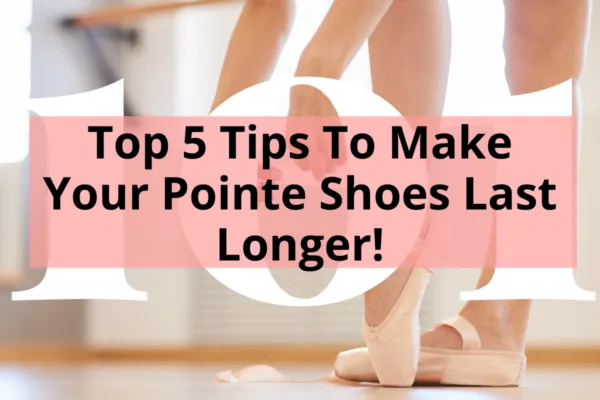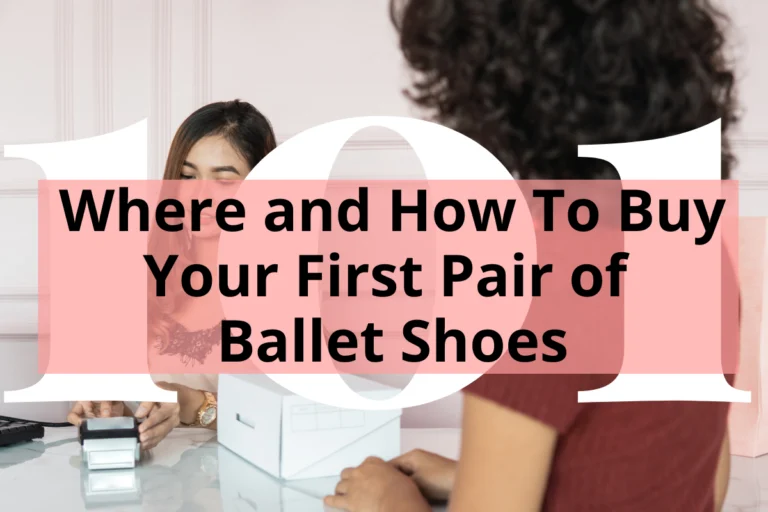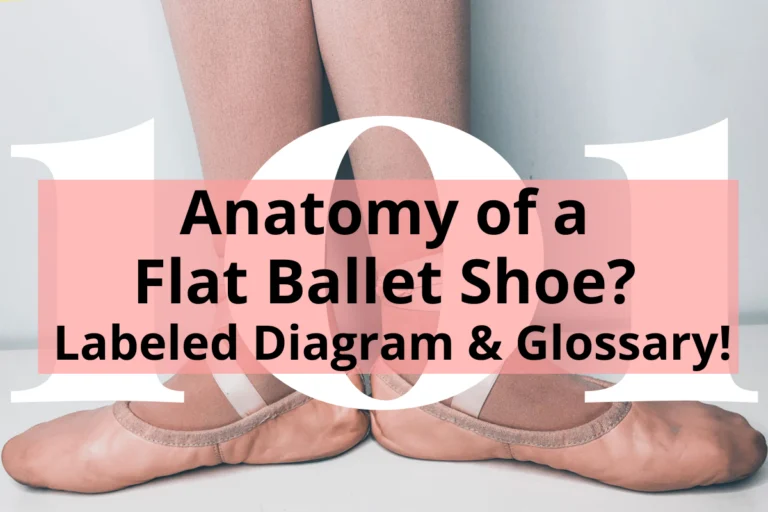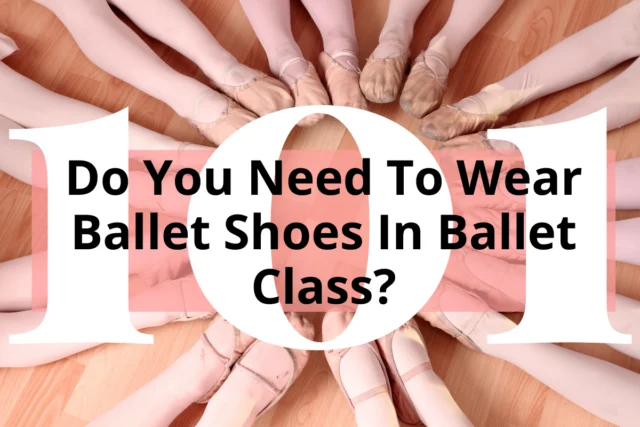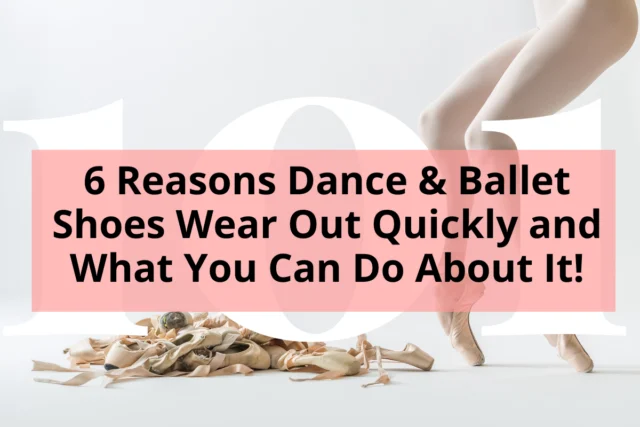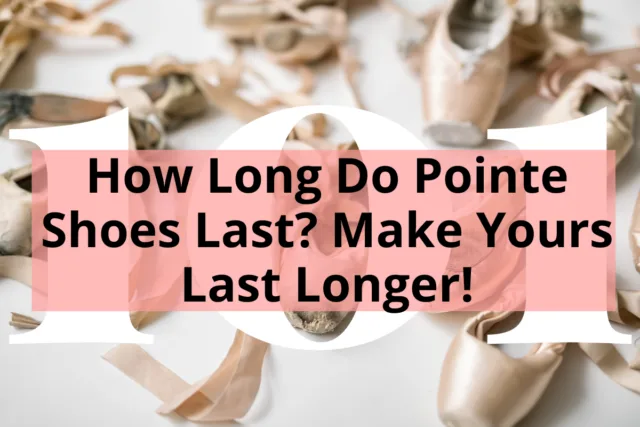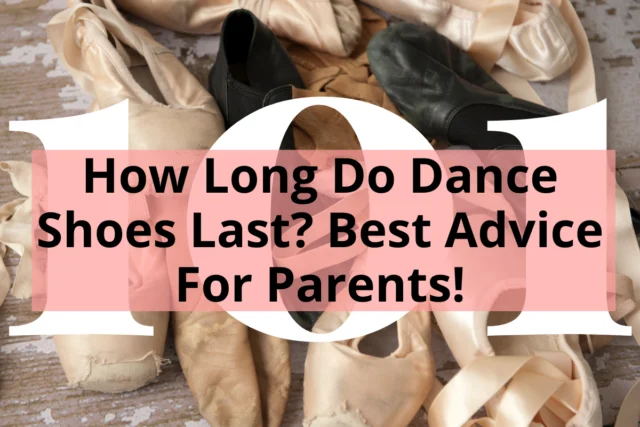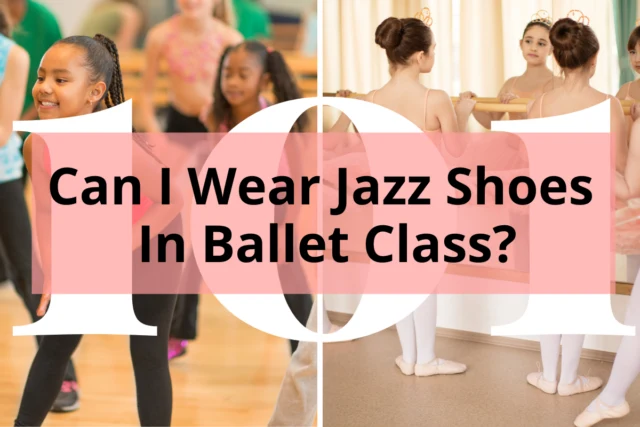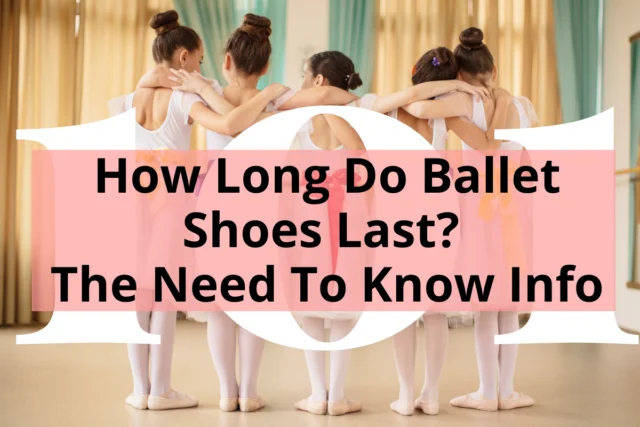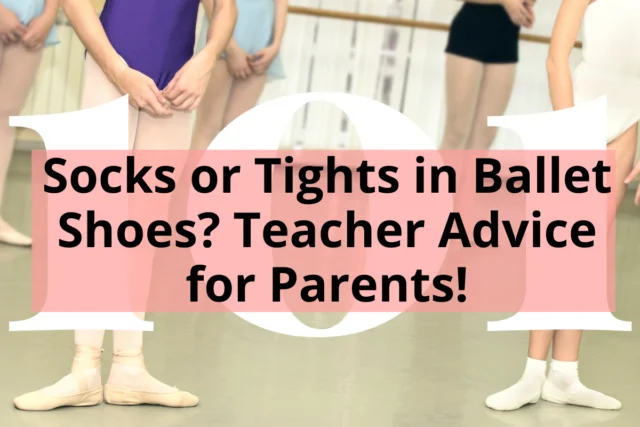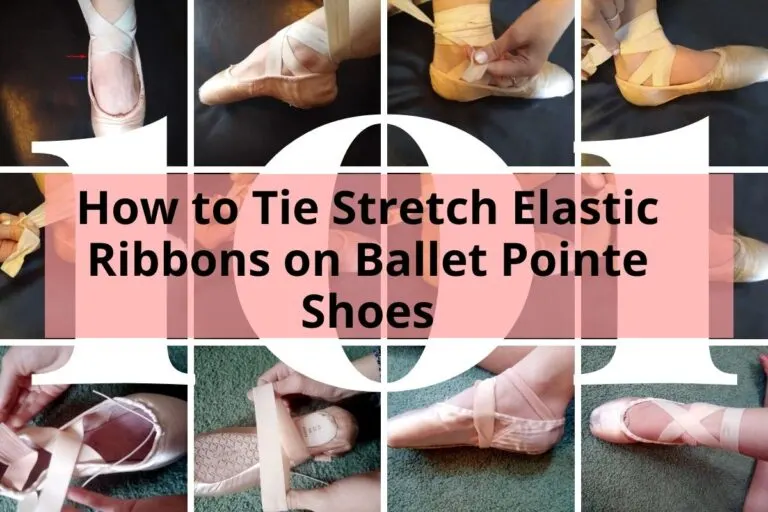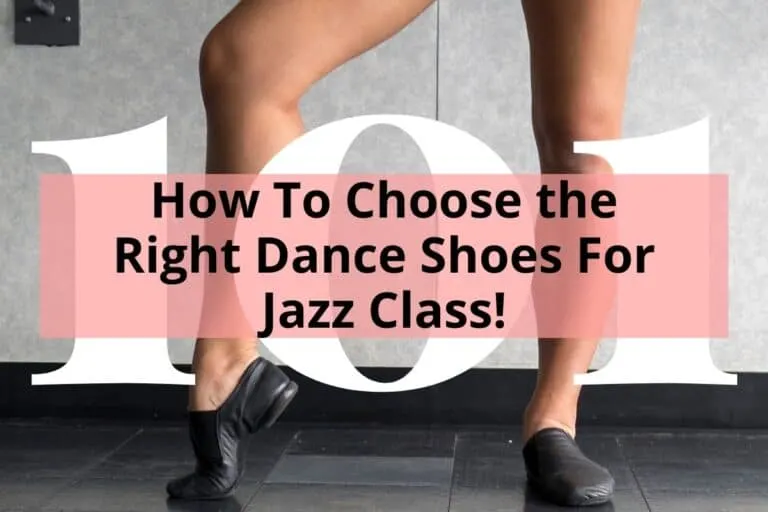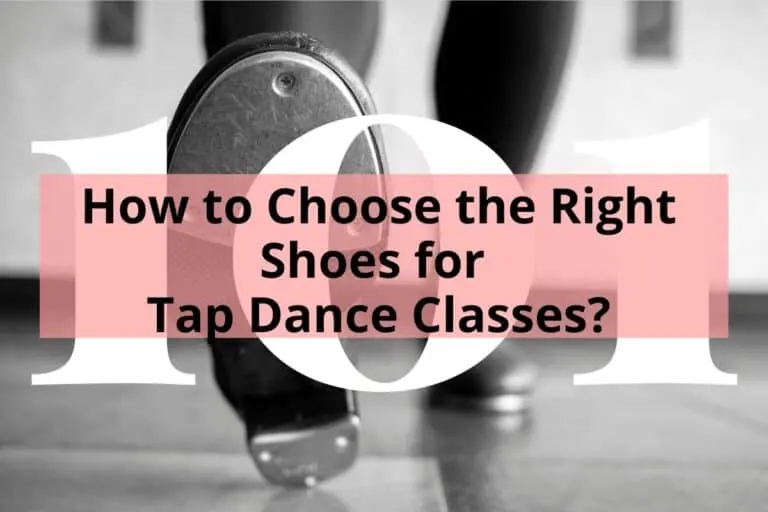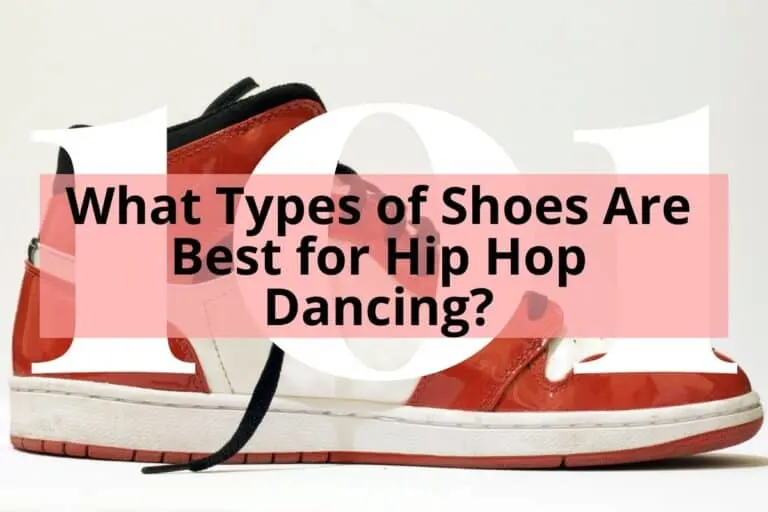Written and Edited By: Lesley Mealor, BPA Dance Performance
Ballet shoes might look like the ideal comfort shoes – they’re sometimes called “slippers” for a reason! So it’s no wonder people want to wear them for more than just ballet class, including outside and on the street. But unfortunately, wearing ballet shoes outside is a big no-no.
Ballet shoes should never be worn outside because they are not sturdy enough to withstand walking on concrete, or in the elements of nature. Dance shoes worn outside can track in dirt and damage the studio floors.
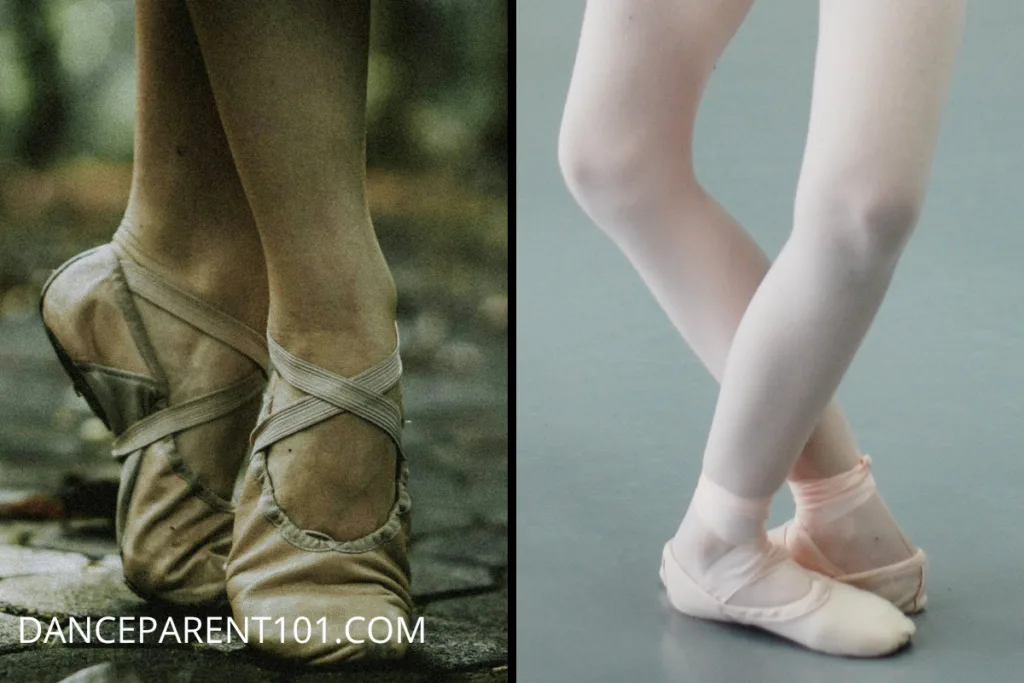
Many companies do make ballet flats that serve the purpose of looking like elegant ballet shoes but are meant for wearing on the street. If you’re questioning whether you should wear your ballet shoes outside, or if you have a child who just won’t take theirs off, keep reading for more details, and a few exceptions to the rule!
What’s The Difference Between Dance Shoes and Regular Shoes?
Just like you wouldn’t show up to basketball practice in soccer cleats, dancers can’t show up to a ballet class in a sneaker. Here are a few differences between dance shoes and regular shoes that you might not have thought about!
Dance Shoe Materials Versus Regular Shoe Materials
Most dance shoes, including ballet, jazz, and lyrical shoes, are made of soft, pliable materials like leather, canvas, and suede. Some ballet shoes are even handmade, which makes them even more delicate!
Most regular shoes, or “street shoes” as we call them in the dance world, are made of more durable materials like rubber, strong canvas, and hard leather.
These materials have proven over the years to work well in the construction of street shoes.
Functions of Regular Shoes Versus Dance Shoes
Regular street shoes go through rigorous testing processes where they are worn in all possible environments, from city streets to dusty fields.
They are designed to hold up for a long time in a variety of situations – running on concrete, walking on tile, or hiking in the mountains, for example.
Dance shoes, and especially ballet shoes, are constructed with one activity in mind – dancing.
Dance classes and performances mostly happen in controlled environments with consistent floorings, like a dance studio or a stage. They are simply not designed for anything but dance!
Fashion Versus Function
Finally, dance shoes are meant to be extensions of the foot. That means they need to have the perfect balance of flexibility and durability.
Street shoes are often meant solely for fashion and don’t have the functionality to perform well in dance classes. Your sneakers might look cool, but they won’t help you in ballet class!
Can I Wear My Ballet Shoes Outside?
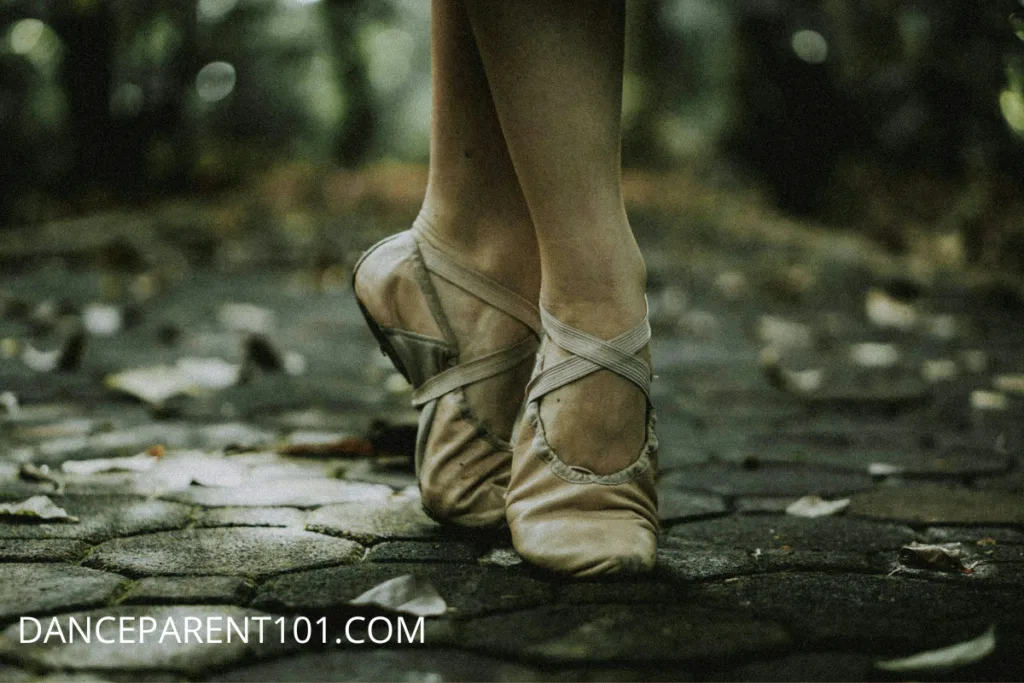
No, you should not wear your ballet shoes outside. Ballet shoes’ lighter color, soft materials, and soft soles cannot withstand outside wear.
While ballet shoes feel comfortable in a dance class, that is because the floor is smooth and free of debris.
Wearing a soft-soled ballet shoe outside might mean stepping on pebbles, gravel, sharp edges, and any variety of painful and uncomfortable encounters!
Not only are ballet shoes ruined quicker by wearing them outside in the elements, but you also risk damaging and dirtying the dance studio floor by tracking in dirt, germs, and general grime.
Can I Wear My Jazz Shoes Outside?
No, you should not wear your jazz shoes outside. Similar to ballet shoes, jazz shoes are made of softer materials that can be ruined with outdoor wear.
Occasionally studios allow dancers to wear jazz shoes outside for a performance, but generally, jazz shoes should only be worn inside.
Can I Wear My Tap Shoes Outside?
No, you should not wear your tap shoes outside (do you see a trend here?) Tap shoes are made of more durable materials than soft dance shoes, but walking or dancing on surfaces like concrete or dirt can damage the attached taps.
Can I Wear My Dance Shoes Outside For a Photoshoot?
You can wear dance shoes outside for a photoshoot, but it would be wise to use an older pair for this task. Outdoor dance photoshoots have become popular in recent years, and they can be really beautiful! Designating a pair of dance shoes for use outdoors will allow for great pictures and clean shoes to use in the studio.
Can I Wear Dance Shoes On Concrete?
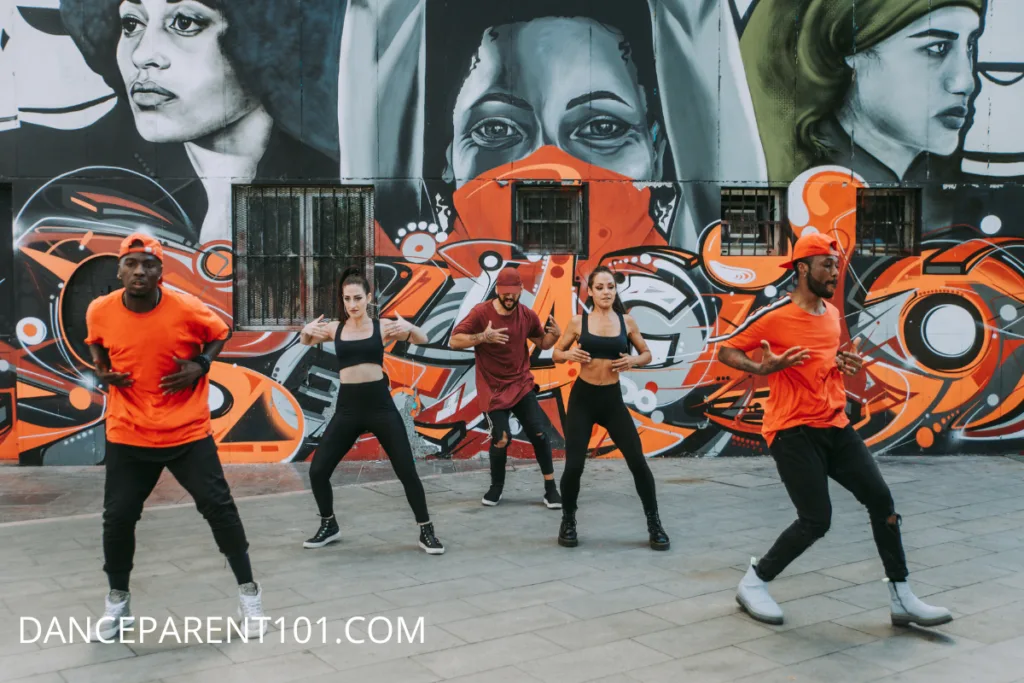
The one type of dance shoe that sometimes can be worn outside or on concrete is a dance sneaker or jazz sneaker.
Many brands of dance sneakers boast a “street to studio” feature, which simply means they are made of durable enough materials to withstand being worn outside on concrete sidewalks and streets.
Keep in mind that when you choose to wear a dance sneaker from the street into the studio, you will 100% track in dirt and grime, so be mindful of where you walk when wearing dance sneakers outside.
It might be wise to wipe the soles with a baby wipe before stepping onto the dance floor.
Find out more about dance sneakers here!
Why Do Dancers Wear Ugg Boots or Warm Up Booties Over Their Shoes?
You may have seen dancers wearing plush booties over their shoes. Not only do these booties help protect dance shoes while going to and from the car to the studio, but they also serve another purpose.
Dancers’ feet and ankles need to be kept warm to perform at the highest level, and warm-up booties like Uggs or these booties from dance brands are great for staying toasty before and after class.
Most warm-up booties have a hard but flexible outer sole made of rubber, so they will last a little longer when worn outside.
Can I Wear Ballet Slippers As Shoes?
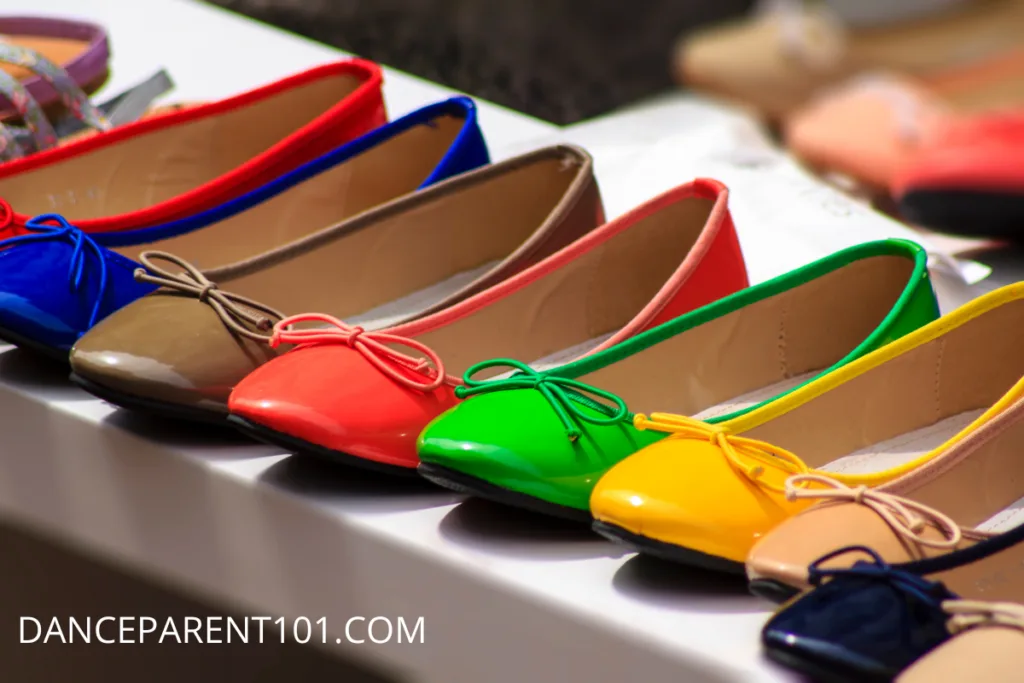
It’s not ideal to wear ballet slippers as shoes, mainly because ballet shoes don’t have strong outer soles.
While they might look pretty, ballet shoes aren’t designed to be worn as regular shoes. If you’re on the hunt for a comfortable, dainty shoe that’s reminiscent of the ballet world, the brand Bloch makes some lovely ballet flats.
Can I Re-Sole My Ballet Shoes To Be Worn Outside?
If you or your child are desperate to wear your ballet shoes outside, you can always go to a cobbler and have them re-soled – but for the cost, you might be better off buying new shoes.
Keep in mind that re-soling a soft shoe with a hard sole will alter the function of the shoe. It will no longer have the flexibility you’re used to and will not be able to be used in ballet class.
Dance and ballet shoes might seem like the perfect complement to a pretty summer dress, but as you can see from the information here, it isn’t the wisest idea to wear ballet shoes outside! Keep your ballet shoes in tip-top shape so that they remain the special, “for dance class only” shoes they are meant to be!

